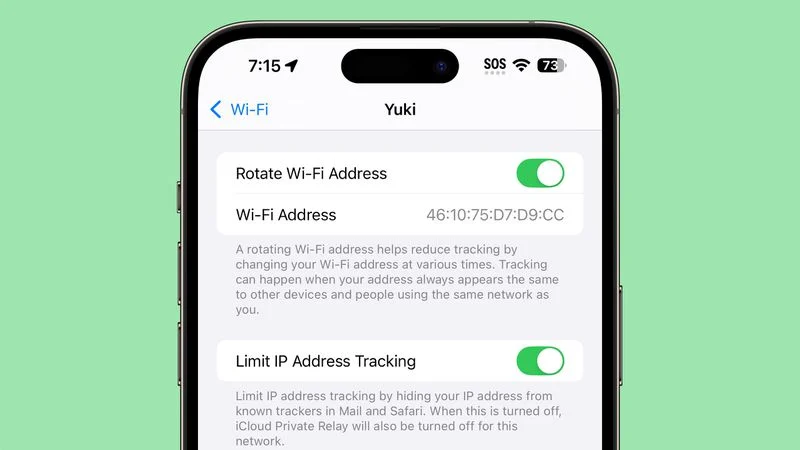Introduction
Apple’s iOS 18 is set to revolutionize user privacy and security with a new feature that rotates Wi-Fi addresses. This innovative addition aims to enhance users’ online anonymity and protect against tracking. In this article, we explore the details of this feature, its implications for user privacy, and how it fits into Apple’s broader commitment to security.
What is Wi-Fi Address Rotation?
Definition and Functionality
Wi-Fi address rotation involves periodically changing the Media Access Control (MAC) address that a device uses when connecting to Wi-Fi networks. The MAC address is a unique identifier assigned to network interfaces, which can be used to track a device’s activity across different networks. By rotating this address, iOS 18 makes it significantly harder for third parties to monitor users’ online behavior.
Implementation in iOS 18
In iOS 18, Wi-Fi address rotation is designed to occur automatically, ensuring seamless protection without requiring user intervention. This feature is integrated into the operating system’s core functionality, working in the background to provide continuous privacy enhancements.
Benefits of Wi-Fi Address Rotation
Enhanced Privacy
The primary benefit of Wi-Fi address rotation is improved privacy. By frequently changing the MAC address, iOS 18 reduces the likelihood of users being tracked by advertisers, network administrators, or malicious entities. This helps protect personal information and browsing habits from being collected without consent.
Increased Security
In addition to privacy, Wi-Fi address rotation also bolsters security. Rotating MAC addresses can help prevent certain types of cyber attacks, such as MAC spoofing, where an attacker impersonates a legitimate device to gain unauthorized network access. This adds an extra layer of defense against potential threats.
Protection Against Network Profiling
Network profiling involves analyzing and cataloging devices based on their MAC addresses as they move between different Wi-Fi networks. By frequently changing these addresses, iOS 18 disrupts the continuity of such profiles, making it more difficult for entities to build comprehensive tracking databases.
Apple’s Commitment to Privacy and Security
Consistent Innovations
Apple has consistently prioritized user privacy and security in its product designs and software updates. Features like App Tracking Transparency and privacy nutrition labels in the App Store exemplify this commitment. Wi-Fi address rotation in iOS 18 continues this trend, reinforcing Apple’s dedication to safeguarding user data.
User-Centric Approach
Apple’s approach to privacy is deeply user-centric, focusing on giving users control over their data. The introduction of Wi-Fi address rotation is another step in empowering users to manage their online presence more effectively and securely.
How to Use Wi-Fi Address Rotation in iOS 18
Automatic Activation
For most users, Wi-Fi address rotation will be enabled by default, operating automatically to enhance privacy without requiring manual setup. This ensures that all users benefit from the feature’s protection right out of the box.
Manual Configuration
Advanced users who wish to customize the feature can do so through the Settings app. Under the Wi-Fi section, users can find options related to MAC address management, allowing for greater control over how and when their device’s address is rotated.
Potential Impact on Network Administrators
Adjusting to New Norms
Network administrators may need to adjust their practices to accommodate the use of rotating MAC addresses. While this feature enhances user privacy, it can complicate network management tasks that rely on static device identifiers. Administrators may need to explore alternative methods for tracking and managing devices on their networks.
Embracing Privacy-Forward Practices
Despite potential challenges, embracing privacy-forward practices like those introduced in iOS 18 can benefit organizations by aligning with increasing regulatory requirements and public expectations for data protection.
Conclusion
The introduction of Wi-Fi address rotation in iOS 18 marks a significant advancement in Apple’s ongoing efforts to enhance user privacy and security. By making it harder for third parties to track devices, this feature underscores Apple’s commitment to protecting user data in an increasingly connected world. As iOS 18 rolls out, users can look forward to a more secure and private online experience, reflecting the latest in privacy innovation from Apple.

